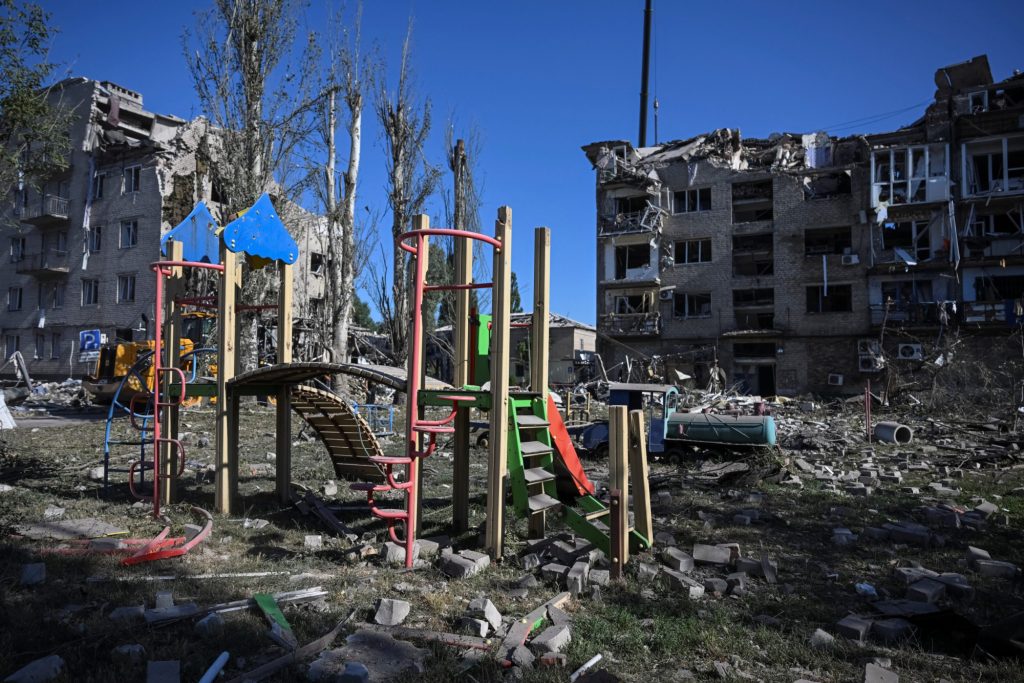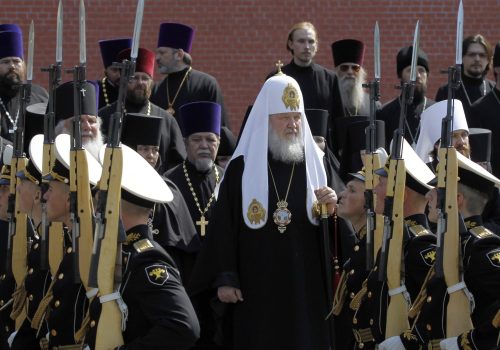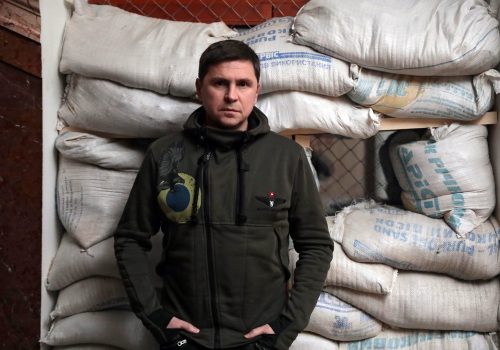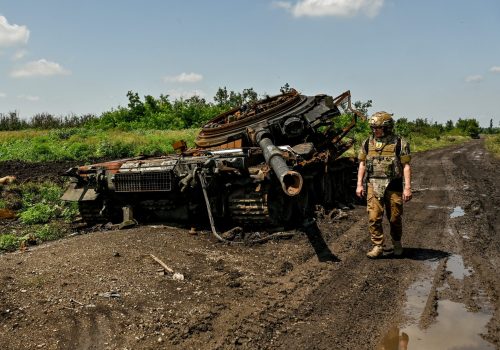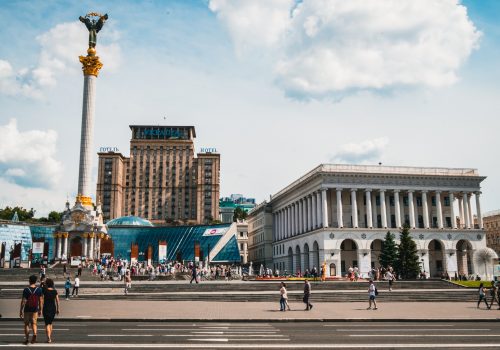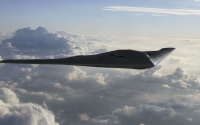
Russia accused of deliberately targeting journalists in Ukraine

A deadly Russian airstrike close to a Ukrainian hotel and restaurant frequented by international journalists is fueling accusations that the Kremlin is deliberately targeting international media representatives in Ukraine. The August 7 bombing in east Ukrainian city Pokrovsk that killed nine people and wounded nearly 90 was the latest in a series of attacks on civilian targets known to be popular among journalists covering the Russian invasion of Ukraine.
This week’s Pokrovsk bombing shared many similarities with a June 2023 attack in nearby Kramatorsk, which struck civilian targets in the city center including a restaurant used by visiting journalists and international aid workers. Victims included prominent Ukrainian writer and journalist Victoria Amelina.
Allegations regarding the deliberate targeting of journalists are not new and first surfaced in the early months of the Russian invasion. In April 2022, the Institute for War & Peace Reporting published a dispatch entitled Ukraine: Journalists “Are Russia’s First Target,” which detailed the deaths of journalists in Ukraine during the first weeks of the war.
In February 2023, International media watchdog Reporters Without Borders and the Institute of Mass Information found that at least 26 journalists were deliberately targeted with rifle or artillery fire during the first year of the war. Reporters Without Borders has since filed multiple war crimes complaints against Russia with the International Criminal Court concerning 44 alleged acts of abuse and violence involving over 100 journalists and journalistic infrastructure.
Subscribe to UkraineAlert
As the world watches the Russian invasion of Ukraine unfold, UkraineAlert delivers the best Atlantic Council expert insight and analysis on Ukraine twice a week directly to your inbox.
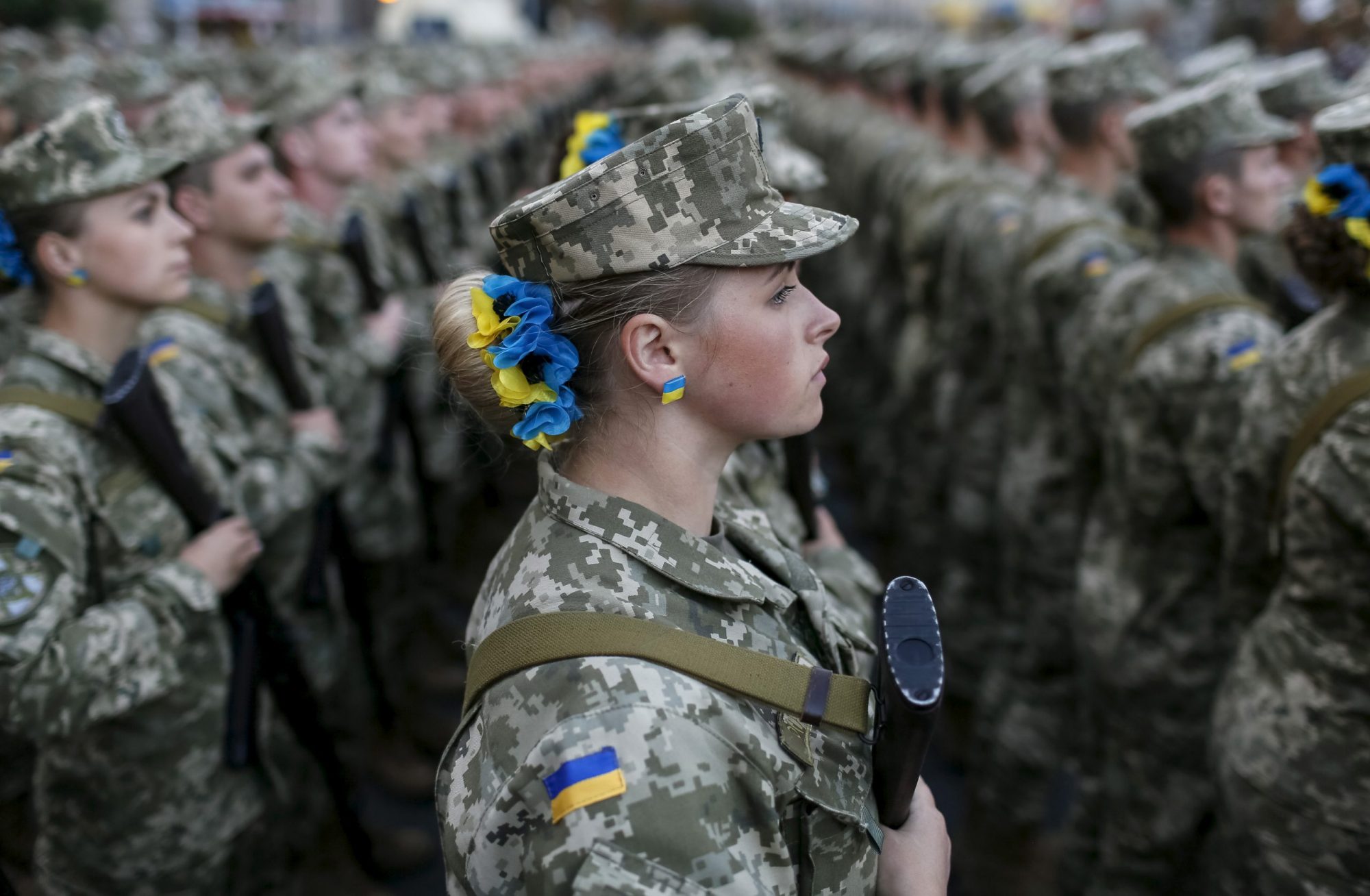
-
-
-
This field is for validation purposes and should be left unchanged.
The targeting of international journalists in Ukraine would certainly be in line with the hard line media policies adopted by the Kremlin within Russia itself. One of Vladimir Putin’s first major steps during the early years of his reign was to assert Kremlin control over the Russian mainstream media. For the past two decades, dissenting voices inside Russia have been steadily silenced, while independent media outlets have been taken over by loyalists or forced to close down. Meanwhile, a number of individual journalists have suffered violent or otherwise suspicious deaths.
The Putin regime’s efforts to suppress free speech have intensified over the past eighteen months following the full-scale invasion of Ukraine. In today’s Russia, merely referring to the invasion as a “war” is a criminal offense, with media outlets instead obliged to use the Kremlin’s preferred euphemism of “Special Military Operation.”
Critics allege the Putin regime’s efforts to muzzle the media also extend to deliberate attacks on international journalists attempting to report on the invasion from Ukraine. “For the Russians, the press is the enemy. They do not want their crimes to be recorded and known to the whole world,” commented Oksana Romanyuk, executive director of the Kyiv-based Mass Media Institute.
Eurasia Center events

In response to Monday’s Russian attack in Pokrovsk, the International Federation of Journalists tweeted out a statement condemning “in the strongest terms the targeting of facilities frequented by journalists. Enough is enough.”
Many international correspondents covering the war in Ukraine have also suggested that the Pokrovsk airstrike deliberately targeted journalists. Financial Times reporter Christopher Miller underlined the popularity of the Pokrovsk hotel and restaurant among correspondents. “I and so many others stayed at Druzhba, conducted interviews at Corleone, and filed stories from both countless times over the years. They are among the few places operating near the front line. No doubt they were targeted by Russia because journalists and military have frequented them,” he tweeted.
Numerous other international reporters expressed similar opinions. The chief international correspondent of Britain’s Independent newspaper, Bel Trew, noted that the hotel and restaurant targeted in Monday’s bombing were well known for hosting journalists and humanitarian aid workers, and claimed the attack “looks like a pattern.” Meanwhile, senior Guardian correspondent Peter Beaumont declared the strikes “very much not a coincidence.”
While it will be extremely difficult to prove conclusively that Russia is engaged in the deliberate targeting of journalists in Ukraine, this is certainly the impression shared by international media watchdog organizations and many of the correspondents working on the front lines of the war. Moscow has an obvious motive for seeking to intimidate international reporters; over the past eighteen months, courageous on-the-spot coverage has frequently highlighted the brutality of Russia’s invasion and exposed the war crimes being committed by the Russian military in Ukraine.
Attempts to prevent reporters from chronicling Russia’s invasion cannot be allowed to succeed. The war unleashed by Vladimir Putin in February 2022 is already widely recognized as a major milestone in the evolution of war reporting, with correspondents able to share updates on a minute-by-minute basis via social media. In this new information reality, it is vital to demonstrate that authoritarian regimes can no longer hope to silence the international media.
Mercedes Sapuppo is a program assistant at the Atlantic Council’s Eurasia Center.
Further reading
The views expressed in UkraineAlert are solely those of the authors and do not necessarily reflect the views of the Atlantic Council, its staff, or its supporters.

The Eurasia Center’s mission is to enhance transatlantic cooperation in promoting stability, democratic values and prosperity in Eurasia, from Eastern Europe and Turkey in the West to the Caucasus, Russia and Central Asia in the East.
Follow us on social media
and support our work
Image: Residential buildings damaged by a Russian missile strike in Pokrovsk, Donetsk region, Ukraine. August 8, 2023. REUTERS/Viacheslav Ratynskyi
